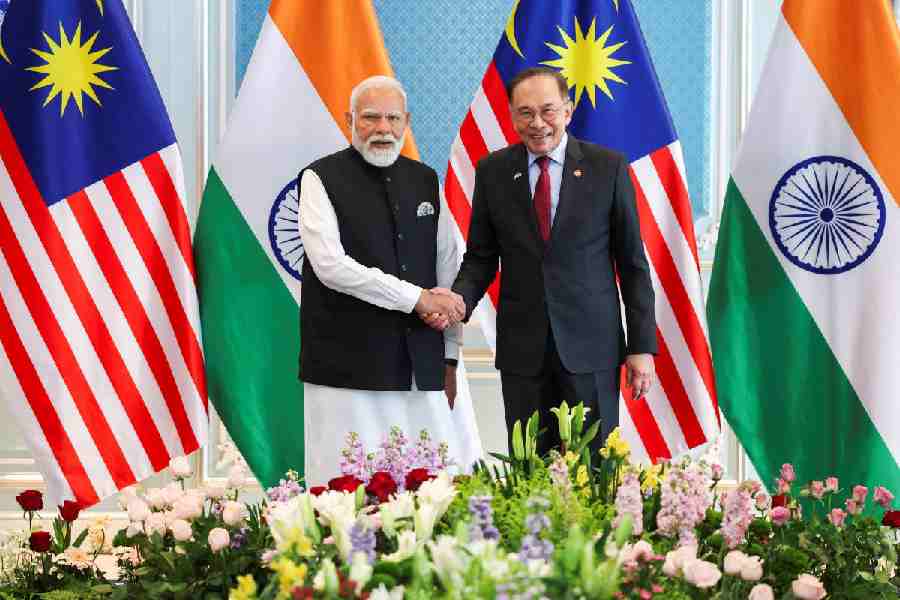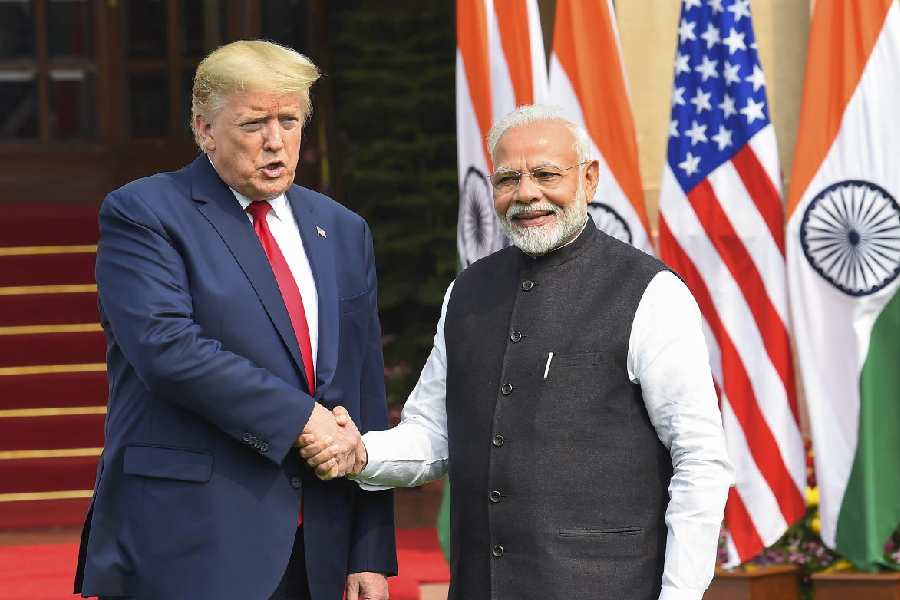 |
Mumbai South, a prestigious Lok Sabha constituency with some of the richest residents in the country, had just a 43.33 per cent voter turnout in the parliamentary elections last year. Other constituencies in the city fared no better — Mumbai South Central recorded 41.85 per cent and Mumbai North Central witnessed a meagre 41.82 per cent turnout.
Mumbai’s low voter turnout figures may be particularly dramatic. But across India, there has been a general decline in the percentage of those who come out to vote on polling day. This has led to demands from some quarters that voting should be made compulsory by law. Last month, the Gujarat government took a step in that direction by passing the Gujarat Local Authorities Laws (Amendment) Bill, 2009, which will make voting mandatory for all eligible citizens when it comes to elections to local bodies like municipalities and panchayats in the state.
Justifying the law, Jai Narayan Vyas, state health minister and spokesperson for the Gujarat government, says, “The middle class has not been coming out to vote for a long time and the only way to change this is to make voting compulsory.”
Constitutional expert and former Lok Sabha secretary general Subhash Kashyap agrees: “I have been an advocate of such a measure at the all India level. For a democracy like ours, it is important that the citizens participate in the electoral process.”
But the Gujarat government’s initiative has its share of critics. For one, many believe that compulsory voting goes against the very principles of democracy. “You might as well introduce royalty or dictatorship. How can one force people to vote? This is an anti-democratic step,” says J.M. Lyngdoh, former Chief Election Commissioner of India.
Adds Tarun Mandal, a Member of Parliament (MP), “In a democratic country citizens are free to make their choice. Not voting is also a choice that they exercise and it should be respected.”
Even those who have long advocated a law to make voting compulsory are uncomfortable with the speed with which the Gujarat government passed the Bill. “From the introduction of the Bill to its passing, it just took two days. I see an ulterior motive in the way the Narendra Modi government rushed to implement this law. There should have been more consultation and debate at the state and national level,” says Jai Prakash Agarwal, an MP who introduced a private member’s Bill in the Lok Sabha asking for a law on mandatory voting in July last year. A similar Bill by MP Bachi Singh Rawat was rejected by Parliament in 2005.
The Supreme Court doesn’t seem to favour the idea of compulsory voting either. Dismissing a public interest litigation (PIL) petition on the issue in April last year, the court observed that the “literacy rate is going up and people are conscious of their rights”. The PIL had suggested that voters who fail to exercise their voting right should have their water and electric supply cut off.
Though not quite so drastic, the Gujarat government’s Bill does include some punitive measures for voters who play truant on election day. Section 16B (1) of the Bill says, “The election officer… may declare the voter to be a defaulter voter who failed to vote at the election of a Municipal Corporation after giving him a notice in the form prescribed by rules.” In case the voter fails to satisfy the authorities on his failure to vote, he may suffer “disadvantages or consequences” as specified in the Bill. The voter is exempted from voting if he is physically unfit or is absent on the date of election from country or the state. But these have to be backed by documentary evidence.
“A defaulter may be deprived of a few civic rights. For example, if he wants to get a car registered, he may not be able to do it, or he may be asked to pay higher than the normal fee,” says Vyas.
Falling voter turnout is, of course, a worldwide phenomenon today. That is why many countries have made voting compulsory and some have also introduced punitive measures for those who fail to vote. In Australia, for example, failure to provide a good reason for not voting results in a fine of Aus $20, which can go up to Aus $50. In Singapore the names of absent voters are struck off the voters’ list and are restored only after they pay a fine. In Belgium a fine of 50 euros is charged for the first offence and 125 euros for a second offence.
Of course, there are countries like Argentina, Greece and Egypt where, though voting is compulsory, failure to vote is not punishable in any way.
Experts say that the Gujarat government could have gone a step further, that is, included not just punishments but also rewards. Kashyap and Agarwal point out, for instance, that the Bill could have given certain incentives such as tax rebates to those who come out and vote. But this may not be such a good idea either, warns Lyngdoh. “Sections of voters are already being induced to vote with liquor and money. Any new provision in form of an incentive will amount to open bribery,” he says.
Another provision of the Bill that has got a mixed reaction is that of “negative voting” Section 16A (1) says: “It shall be the duty of the qualified voter of the Municipal Corporation to vote at the election of the Municipal Corporation; however, he will be free to cast his vote in favour of none of the candidates contesting election.”
Kashyap calls this provision “unconstitutional”. “Voting takes place to elect representatives. There is no place in the Constitution for negative voting or neutral voting,” he says.
But the Gujarat government says that the provision is more of a “neutral” vote rather than a “negative” one. “It is more of a no-opinion vote. If somebody is not interested in politicians, he may as well give his opinion by casting a no-opinion vote,” says Vyas. He also clarifies that the outcome of an election result will depend on the votes cast in favour of candidates, even if the “neutral” votes are the highest in any constituency.
Others say that such laws may not be the answer to voter apathy at all. Mandal says that the problem lies with the politicians and not with voters. “Rather than thinking about introducing laws, we should mull over the failure of politicians to enthuse voters,” he says. Agrees Lyngdoh. “People will come back to vote if the politicians do not fail them repeatedly. That’s the only way forward.”











